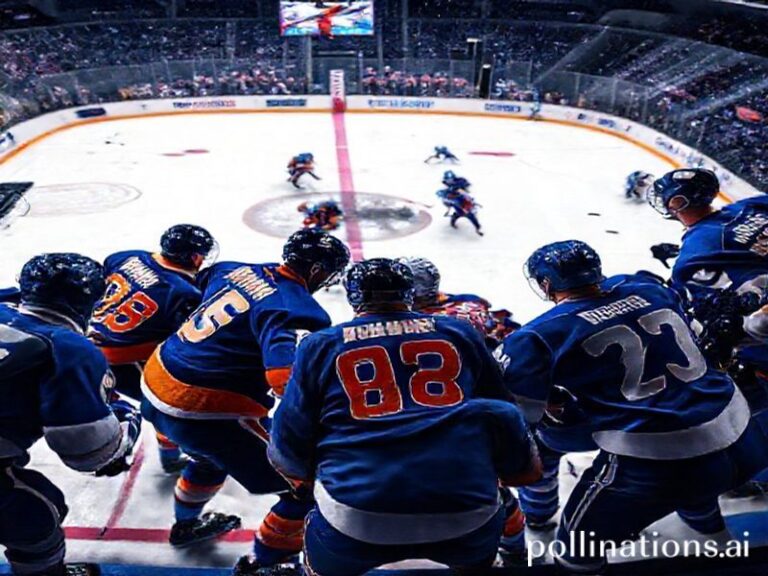Mario Kart: The Last Working Global Institution (Yes, Really)
In the shadow of real-world supply-chain meltdowns, drone strikes on grain silos, and the slow-motion car crash we politely call “global governance,” one multinational conflict rages on with the moral clarity of a sugar-crazed toddler: Mario Kart. Yes, the Nintendo confection that debuted in 1992 has quietly become the planet’s most reliable diplomatic summit—equal parts Geneva Convention and demolition derby, hosted nightly on 45 million Switches from Lagos to Reykjavík. While the UN Security Council argues over commas in a press release, eight players on four continents are shelling one another with incendiary turtles and calling it sport.
The game’s genius is its merciless egalitarianism. Whether you log in from a Singaporean penthouse or a São Paulo favela, the same immutable laws apply: the blue shell always finds the leader, the banana peel never discriminates, and the finish line is forever 200 meters past the point where your dignity expires. In that sense Mario Kart is the most honest mirror we’ve held up to globalization since the container ship—except the container ship rarely explodes in neon confetti when it sinks.
Consider the geopolitical metaphors baked into each track. Rainbow Road is the Belt & Initiative in microcosm: a glittering, zero-gravity bridge to nowhere that everyone swears will unite us even as half the convoy plunges screaming into the void. Coconut Mall stages the death of brick-and-mortar retail, complete with suicidal escalators and parking-lot anarchy. And then there’s the newest DLC, the “Sky-High Sundae,” which looks suspiciously like a Dubai skyscraper made of ice cream—an edible monument to petro-capitalist hubris that melts faster than crypto in a liquidity crisis.
Item boxes, those spinning cubes of Schrödinger’s karma, function as randomized austerity packages. Pull a Bullet Bill and you’re a hedge fund in 2009: an unstoppable bailout on rails. Get nothing but coins while the guy in last place nets three red shells? Congratulations, you’ve just experienced the Global South’s IMF loan terms. The game’s rubber-band logic, which gifts speed boosts to stragglers, is essentially Universal Basic Velocity—except voters hate it when real governments propose the same idea.
Cross-cultural trash talk has become its own pidgin. A Japanese player’s “wwww” morphs into Brazil’s “kkkk,” which collides with Russia’s “)))),” producing the linguistic equivalent of a ten-car pileup. Meanwhile, the French spam “tg,” short for “ta gueule,” a phrase that doubles as both friendly fire and existential critique of the human condition. Linguists studying these exchanges have confirmed that within three races, participants adopt a hybrid emoji-argot more efficient than Esperanto and twice as likely to start a trade war.
Corporate Nintendo, ever the Switzerland of entertainment, profits handsomely from this chaos. The Kyoto giant rakes in royalties from plastic wheels and character skins while maintaining the diplomatic fiction that Princess Peach is a “benevolent monarch” and not a pastel Habsburg with a kart-mounted banana republic. One suspects the Mushroom Kingdom’s foreign ministry is staffed entirely by Toads because they can be cloned without severance packages.
And yet, for all its cartoon carnage, Mario Kart may be the last shared ritual that still works. When a Ukrainian player in a bomb shelter can blue-shell a Russian kid in Novosibirsk, the act contains more genuine détente than any bilateral working group on “digital sovereignty.” The lobbies refill faster than UN peacekeeping budgets, and no one asks for your vaccine passport—only that you refrain from rage-quitting when Baby Luigi snipes you on the final corner. In a world increasingly partitioned by paywalls, borders, and algorithmic echo chambers, the humble rainbow road remains stubbornly toll-free.
So here we are: eight tiny vehicles, one planetary anxiety disorder, and a finish line that keeps receding like a climate target. We may never agree on carbon credits or debt restructuring, but we can all consent to the physics of a rogue green shell. If that’s not an international framework, it’s at least a ceasefire—temporary, technicolor, and utterly absurd. Which, come to think of it, makes it the most accurate map of 21st-century politics money can buy.







